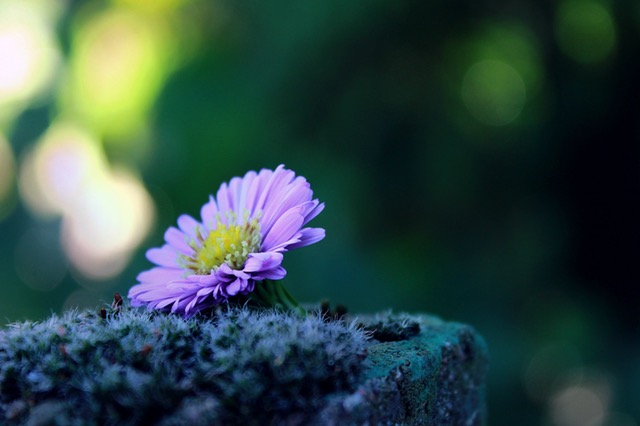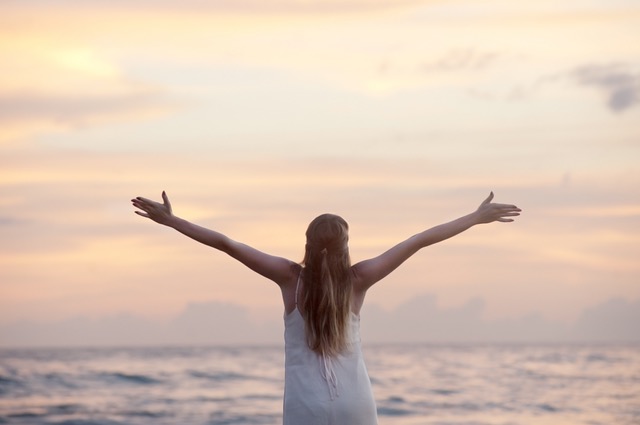I’ve just come back from a 10-day silent meditation course. I did my first one in 2012, and it was the best thing I have ever done – I don’t say that lightly. I’ve since done five of them, as well as an 8-day course and the odd 1-day course. People often ask me what they are like and it’s a really hard question to answer, but I thought, given the difference they have made in my life, it was worth trying to explain.
You arrive with a bunch of strangers, many looking a bit nervous, at the meditation centre. The one I went to in Italy is an old converted holiday house with a bit of an institutional feel, and you share a room with four or six other people. Not plush. But then they are also free. I’m sure there are plusher ones that you pay for.
The timetable is pretty hardcore. You are encouraged to meditate for around 10 hours every day, though the bare minimum is three hours. But there is a very loud gong at 4am which can be quite hard to sleep through, and there is nothing else to do except sleep and walk round a small walking track, so even if I’m taking it easy, I do at least seven hours each day.
You basically live the life of a monk or a nun for 10 days. The sexes are segregated, you share facilities with lots of strangers and just spend hour after hour in silent meditation or daydream.
What this means is that anything you don’t want to think about comes up in your mind. Wrongs that you did, wrongs that were done to you, strange memories from school days… all of these float up to the surface of your mind and you start to think about them. Then you remember you are supposed to be meditating and go back to doing that. But three seconds later you are back with a thought.
That is basically what always happens with meditation. But in this intense experience of it, you learn so much about your mind and your ability/lack of ability to master it. Because you can’t talk to anyone or distract yourself, you have to face yourself head on. The process forces you to take responsibility for how you feel and gives you a tool to manage that. You realise that one moment you can be happy and relaxed, thinking about a lovely memory, and the next moment, hot with rage as you think of some particularly unpleasant thing.
As the process goes on, an alchemy takes over. You get glimpses of how you can let things go. Glimpses of how to remain calm and equanimous when the unpleasant sensations of rage or guilt or fear arise. And you realise how incredibly powerful that ability is.
It opens the door to being able to enjoy your life regardless of what happens (within bounds – I found myself thinking about Victor Frankl’s book on his experience of concentration camps, and how hard it would be to have complete control over your own mind in the most extreme of circumstances).
You also just get lots of time to think. In the smartphone age there is always something pinging at you or a game to play/blog to read. You never have time to be bored. But boredom is important. It pushes you past the things you don’t want to think about, and out the other end. For me, it gives me time to be logical about life – what matters to me? What doesn’t? This ability both to separate myself from my emotions, and have time to think clearly, paves the way to navigate life’s choices, big and small.
Silent retreats aren’t for everyone. The ones I go to are a bit like an extreme exercise camp – if you arrive very unfit, you could end up completely transformed, or in hospital! And if you have an injury or weakness that you are unaware of, it will probably improve, but could be exacerbated. I think it’s the same – I’ve heard first hand of miraculous results with people’s depression leaving them or long-standing physical ailments clearing up. But other people have awful experiences, and there is limited support on the course because the focus on self-responsibility is so strong. Also you are encouraged to sit still three times-a-day from Day Four onwards, which helps you look at your aches and pains objectively, but some people really torture themselves (this is not the idea – but the instructions do push you to sit with the pain). I suspect the teaching is set up for a more relaxed Indian approach, and when it meets Western culture with the intense pressure so many of us put on ourselves, it can do damage. I also think there should be more time spent doing self-compassion.
So, yes, it is the single most transformative thing I have done in my life. But despite this, I recommend it with caution. It is very strong medicine. There are lighter retreats that exist with more support and that may be a more gentle way to examine one’s mind. However the course I just did was wonderful. Yes it was hard work, and yes I was glad when it was over. But it left me feeling much more balanced, happier and focused on what really matters.

